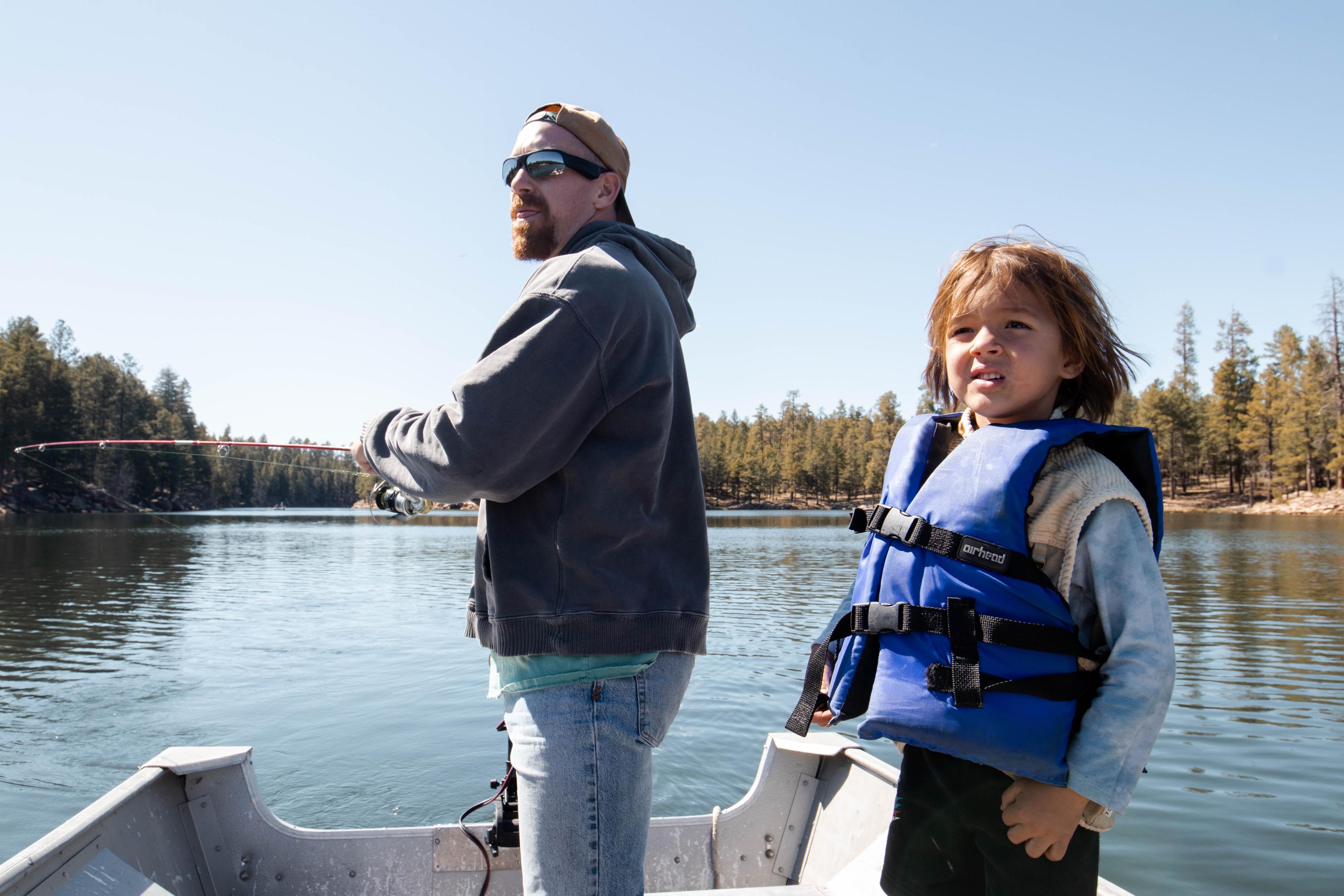


What Age Can My Kids Start Fishing?
26 September 2023
Three or four years old is considered a good age to give children their first taste of fishing. At this age, they have a good enough level of patience and are developed well enough to allow them to handle the equipment. They’re also mentally able to understand things like water safety and to ask questions that will allow their interest to blossom.
That being said, it’s never too early to promote a love of fishing in your children, even if they’re not attending the pond, lake or sea themselves. You can share photos, watch videos, or talk to them about what you do when you fish. Children love the connection with fishing to the natural world, so you can chat to them about species of fish and how food chains and ecosystems work. Similarly, there is no upper-age either. Fishing is an activity for all ages; it’s never too late to give it a go.
Benefits of fishing
Fishing is a very accessible sport for kids, and it brings with it many benefits. It gets children outside, teaches them the virtue of patience and perseverance, and provides a tranquil environment to be in. Many of the qualities that fishing develops in children can positively impact other areas of their development, so it's definitely worth encouraging them to give it a go. What’s more, it’s a great bonding activity. Even if your child is too young to hold a rod, they’ll still enjoy the experience of going with you to sit by the pond, creating precious memories and taking pleasure in being outside.
Mental and physical development
At about three, your child should have the patience to sit for long spells, and will be beginning to develop the motor skills and strength to handle the equipment. Handling rods (and slippery fish), attaching bait and tying knots all require a level of dexterity of the fingers. Many pieces of equipment also have sharp edges that need handling safely. Children will also need to be developed well enough to recognise and understand risks and responsibilities.
Water safety and responsibilities
This is something to really consider. There isn’t an exact age limit on when your child will be safe around water. You know your own child best. Be aware that lakes and ponds are dangerous places, and that young children might run away or slip. So wait until they are ready. Similarly, you don’t want to scare children by talking too much about dangers. Make sure your child really understands and has the maturity to properly understand the risks. This goes for the ethics of the environment, too. A big part of fishing is sustainability and respect for nature. Children will need to know this before going fishing with you.
Fees, licences and equipment
One plus point of being a child is that children under 13 do not need a licence to fish, and licences for children aged 13 - 16 are free. Therefore, children are at the perfect age to have a go at this sport without it costing too much. They can try before they buy! Training and beginner rods are relatively cheap, so it won’t cost too much to let your child have a go. One drawback can be that they will outgrow their kit. Then again, if they’ve been doing it long enough to outgrow their rod, then they’re probably already “hooked” for life!
Photo by Derek Owens on Unsplash
